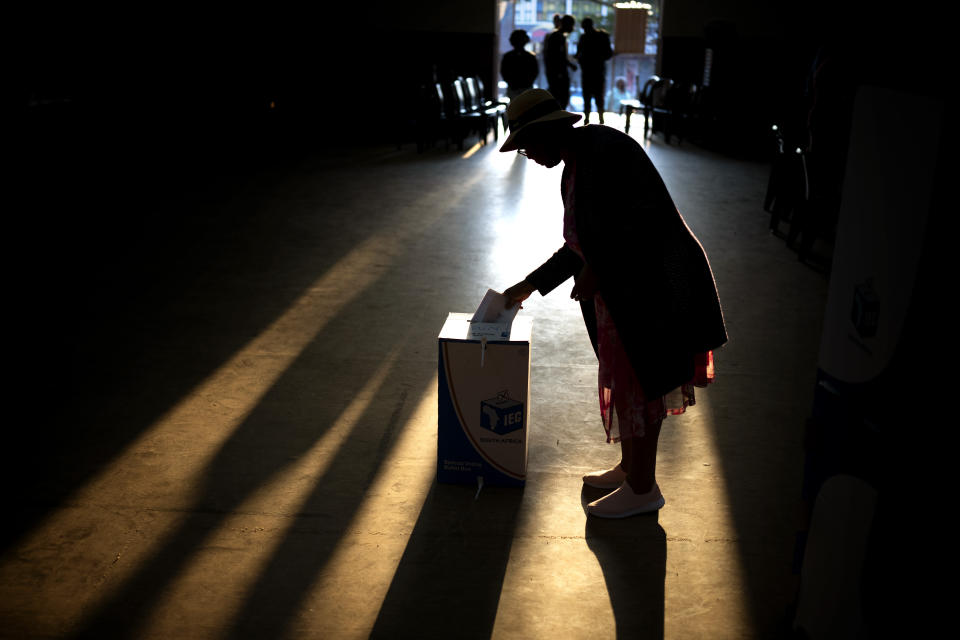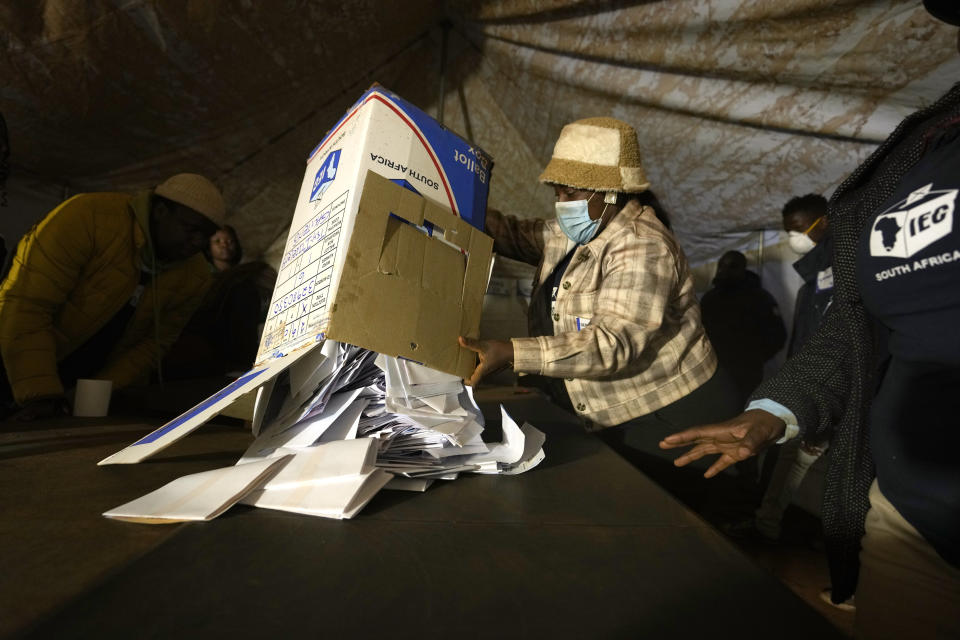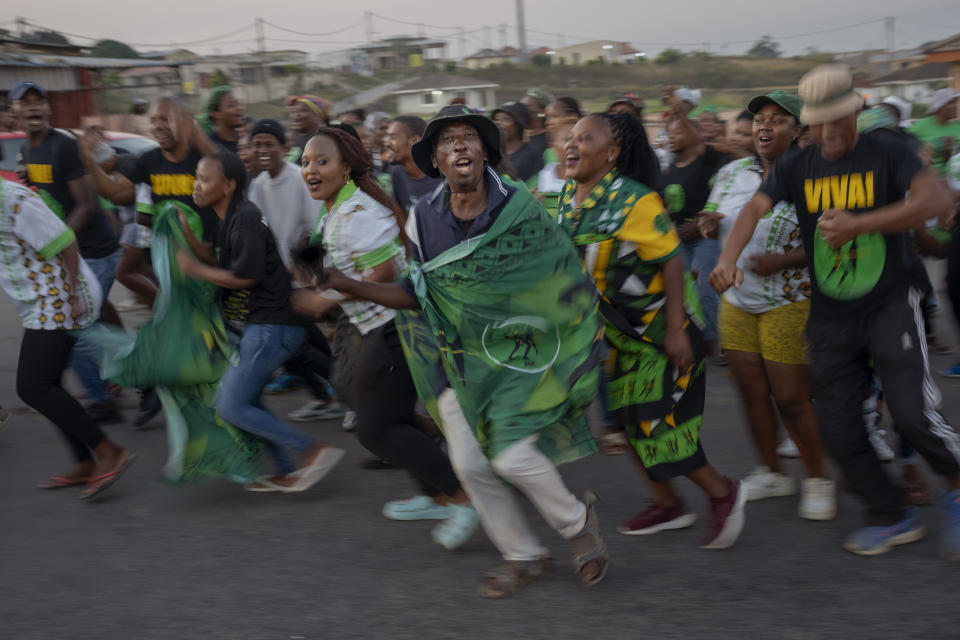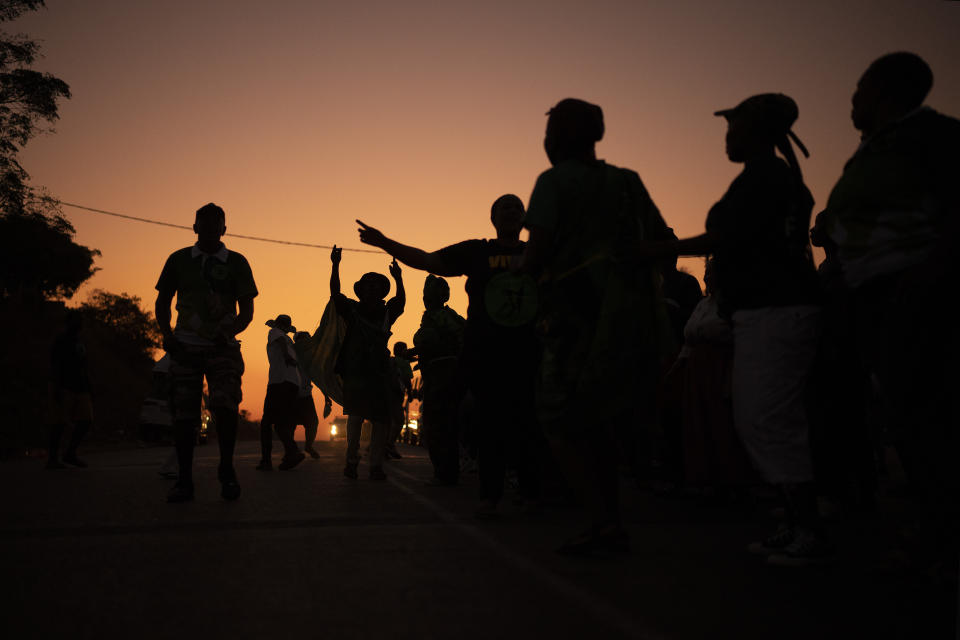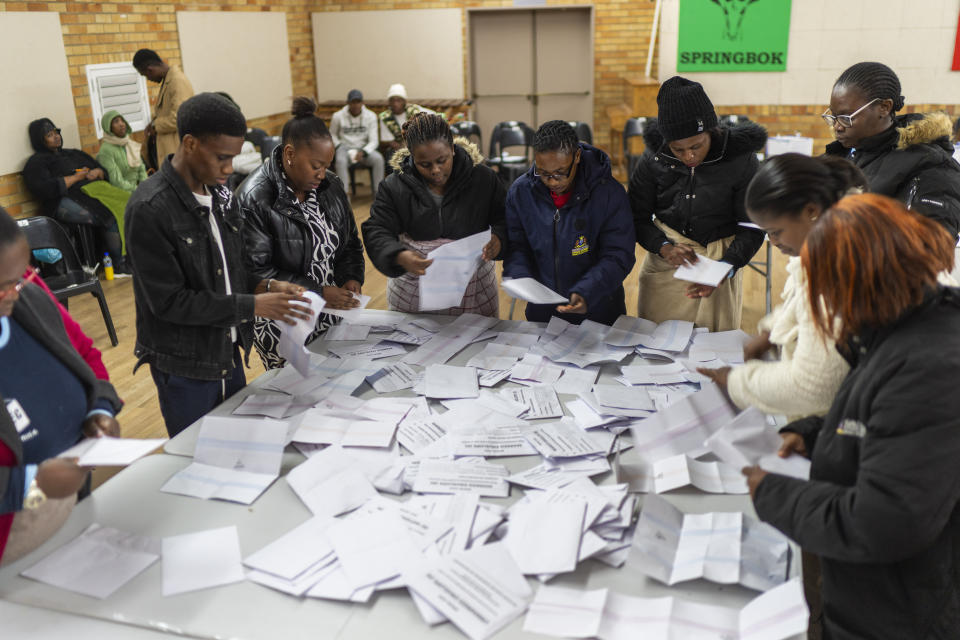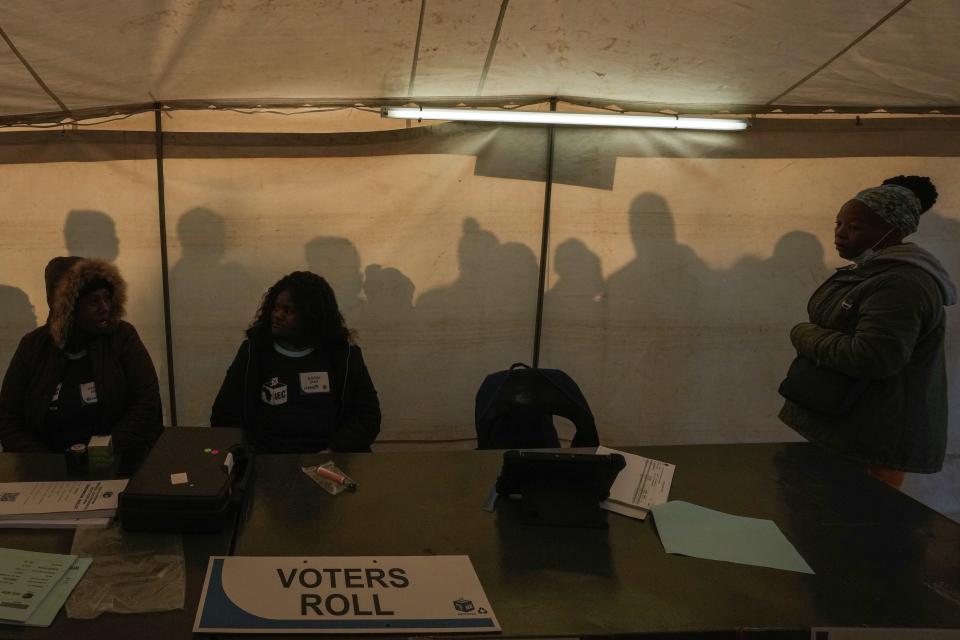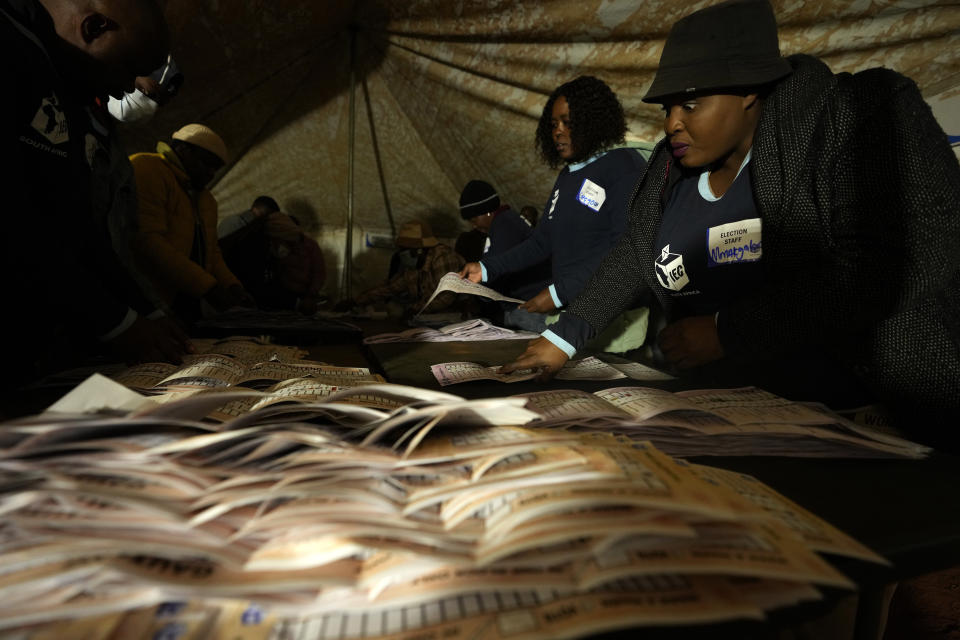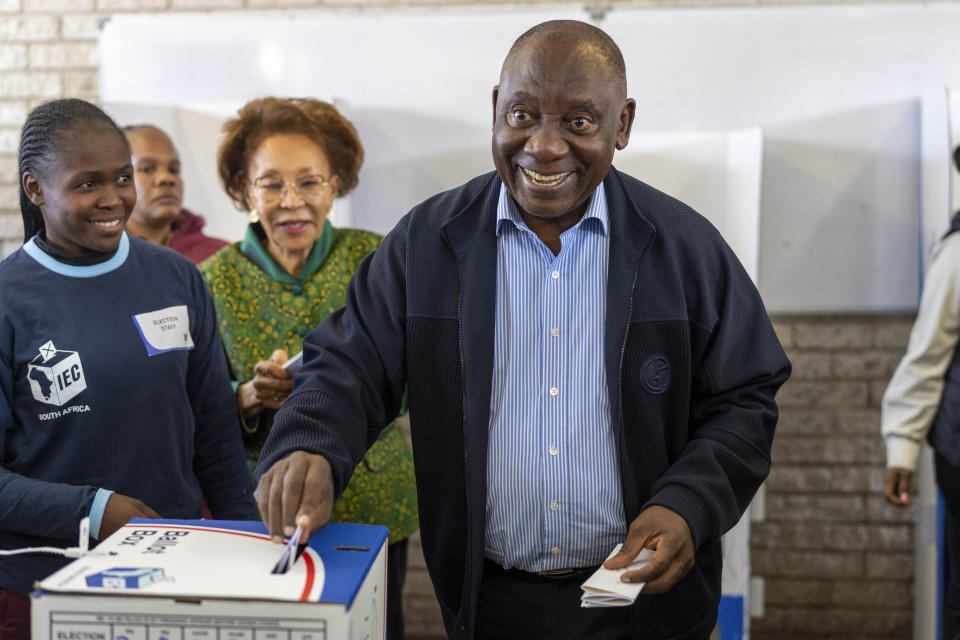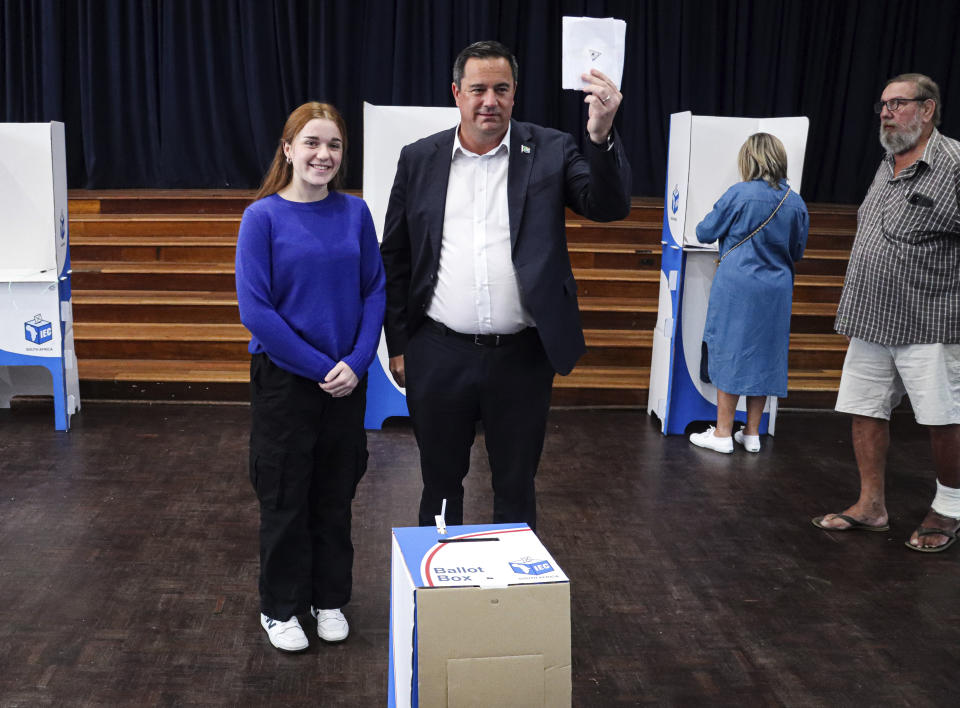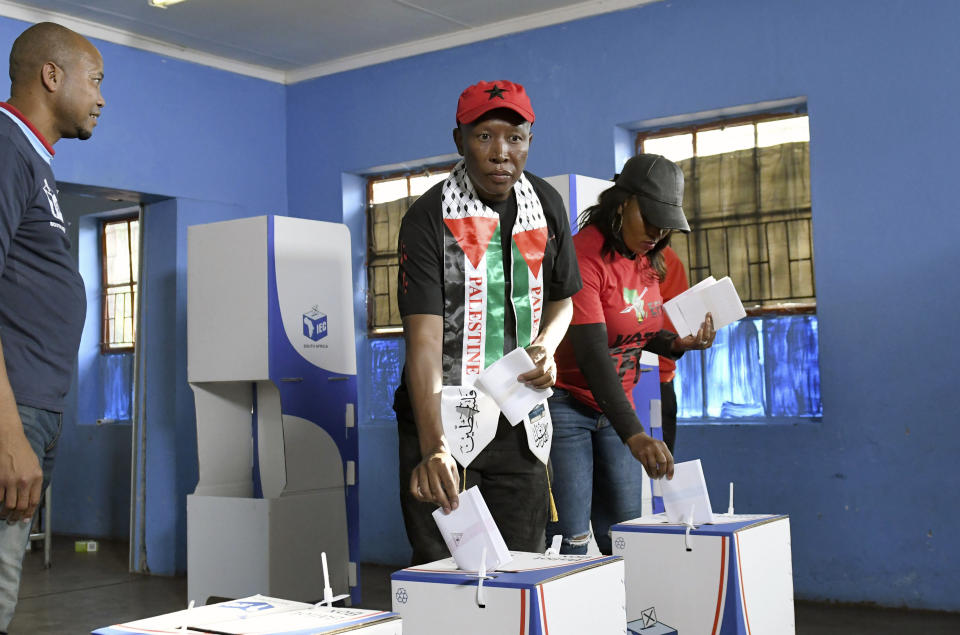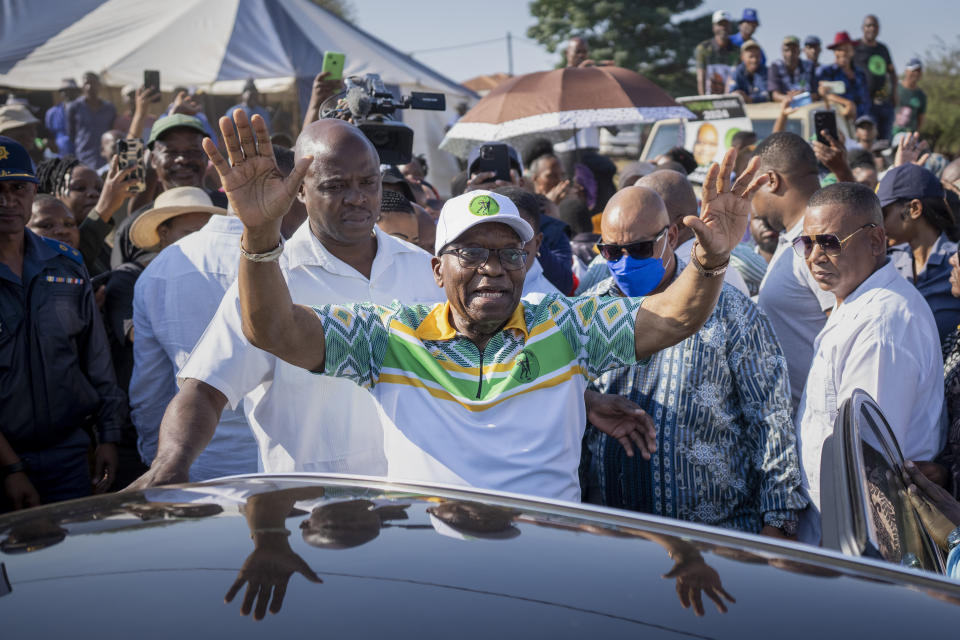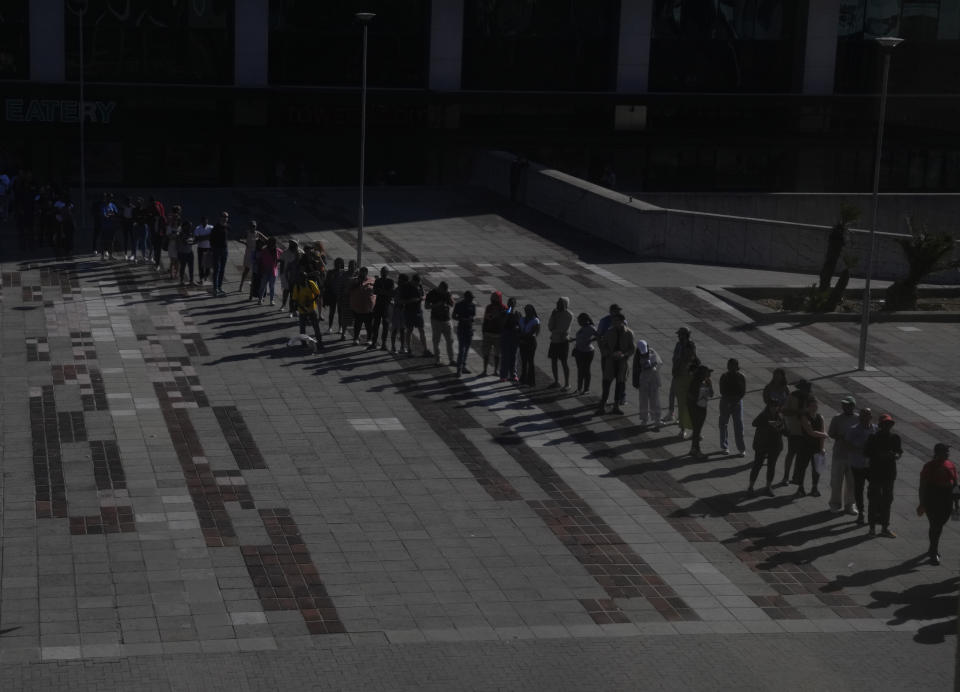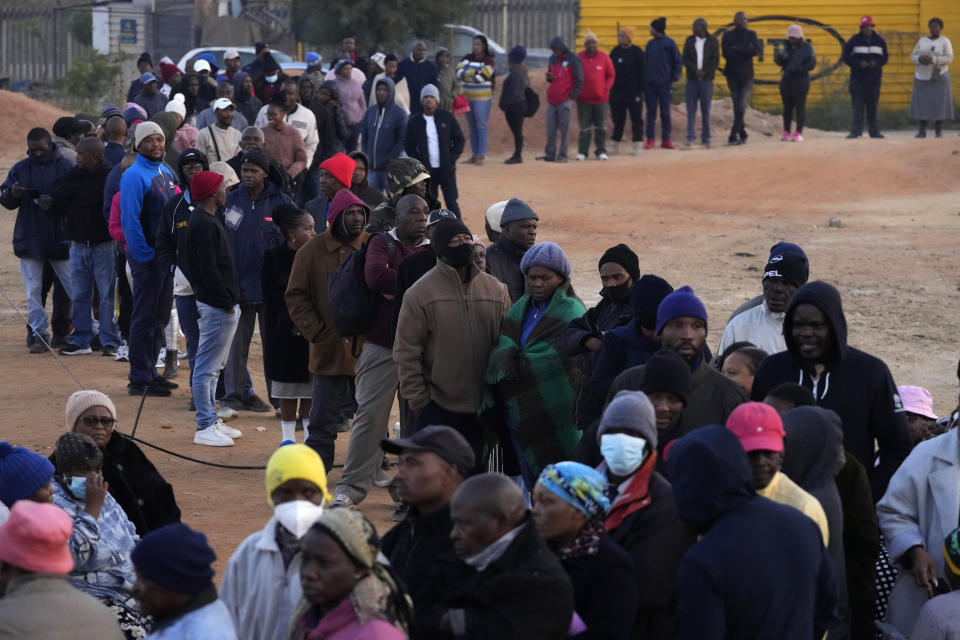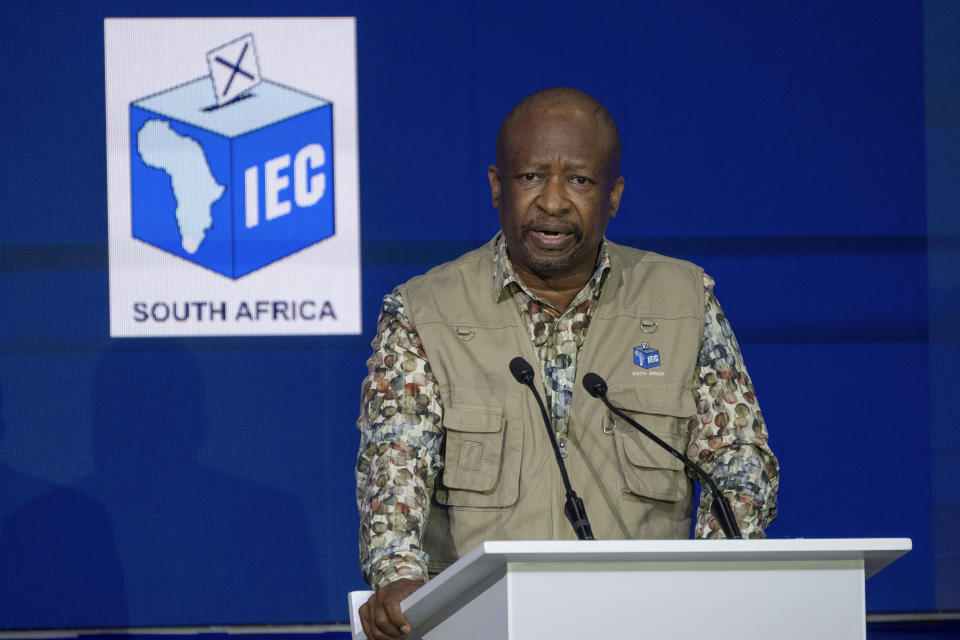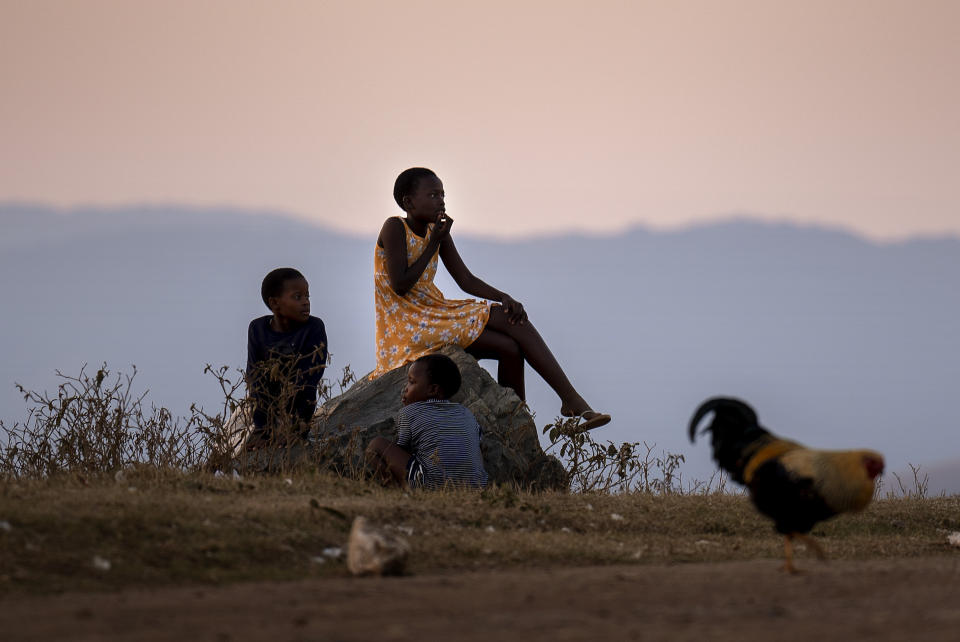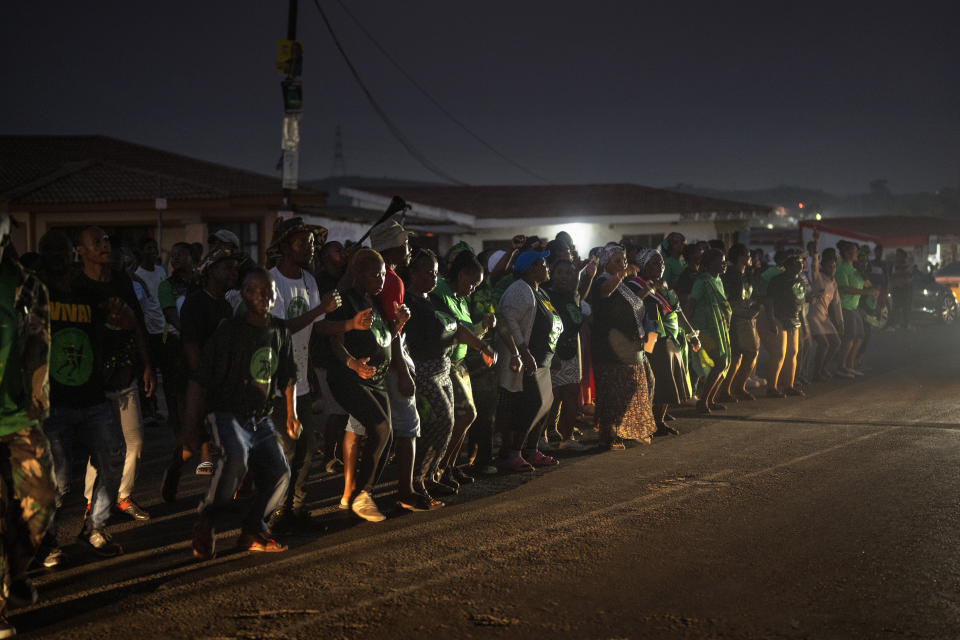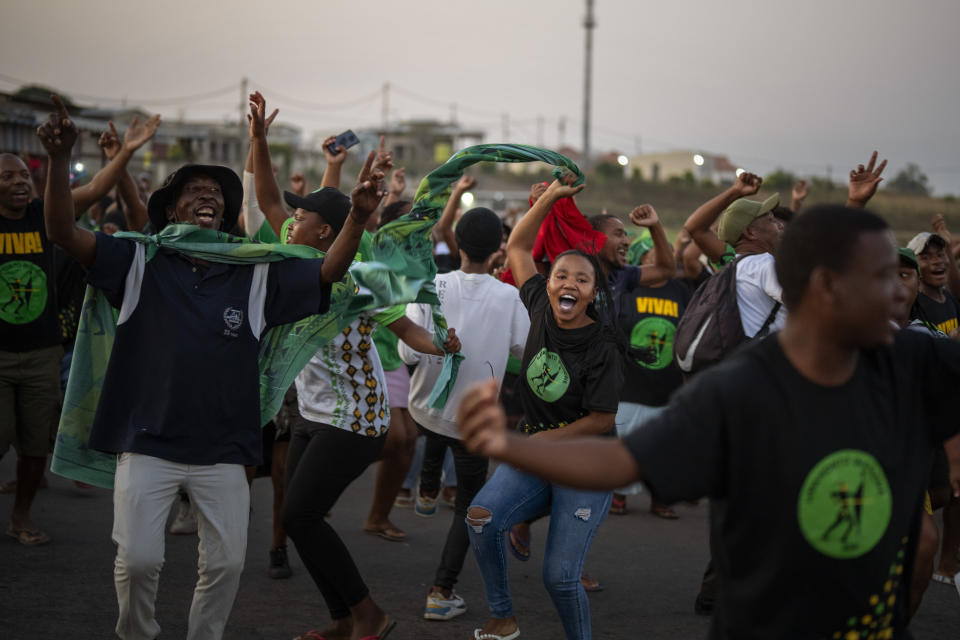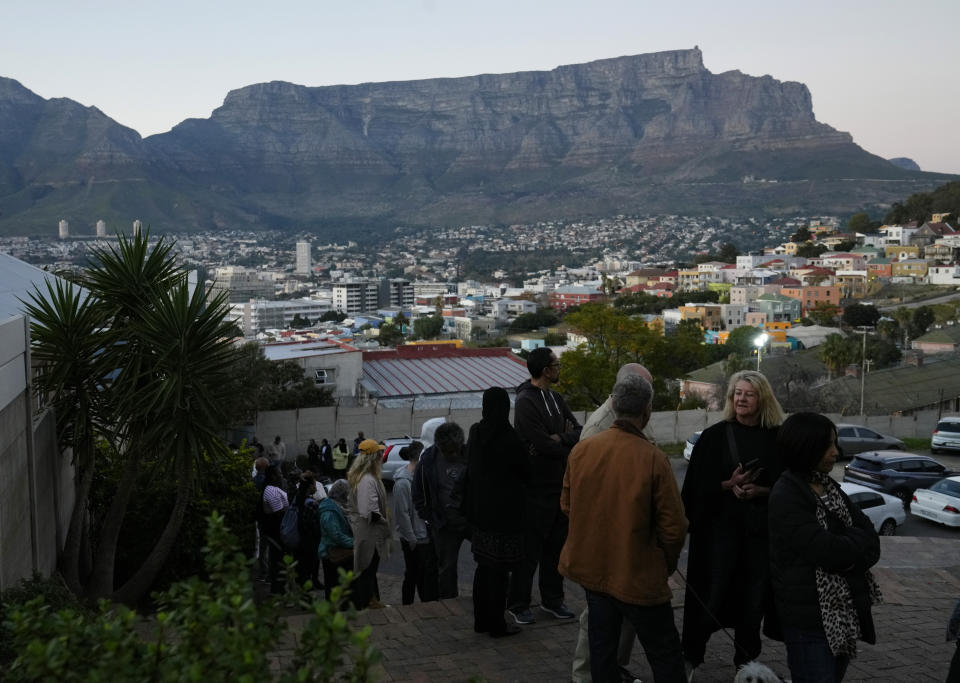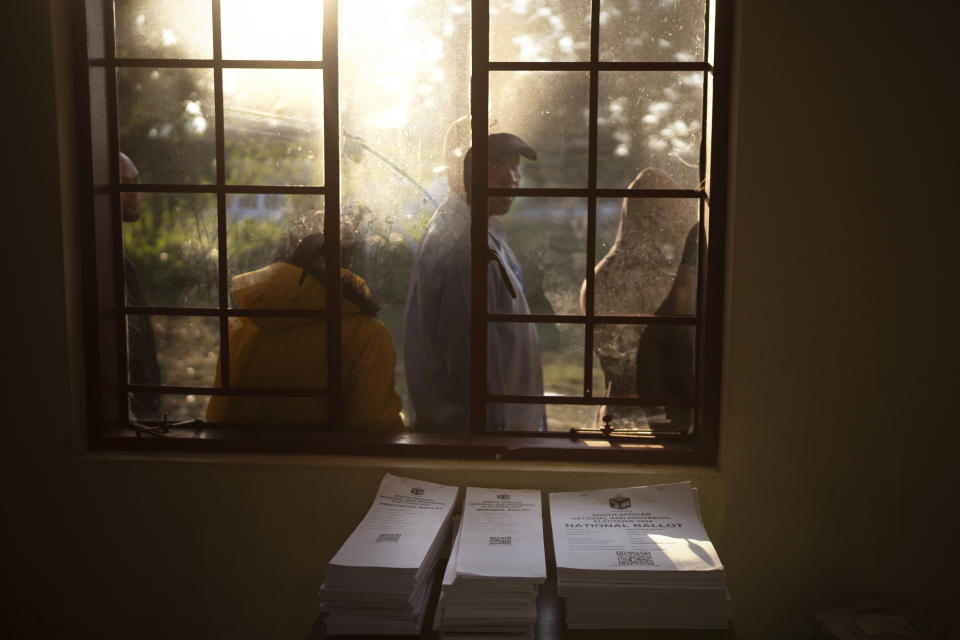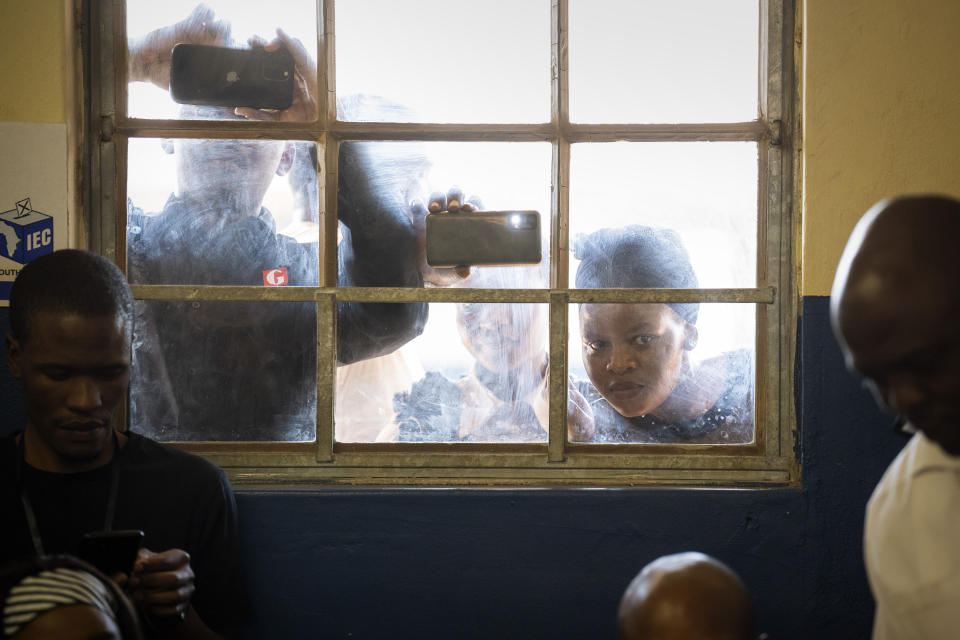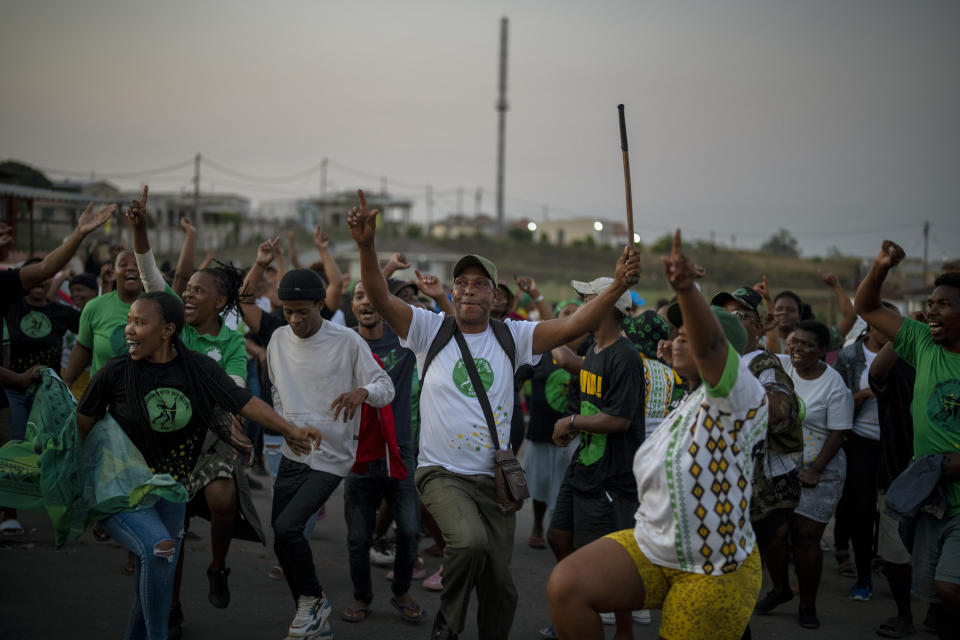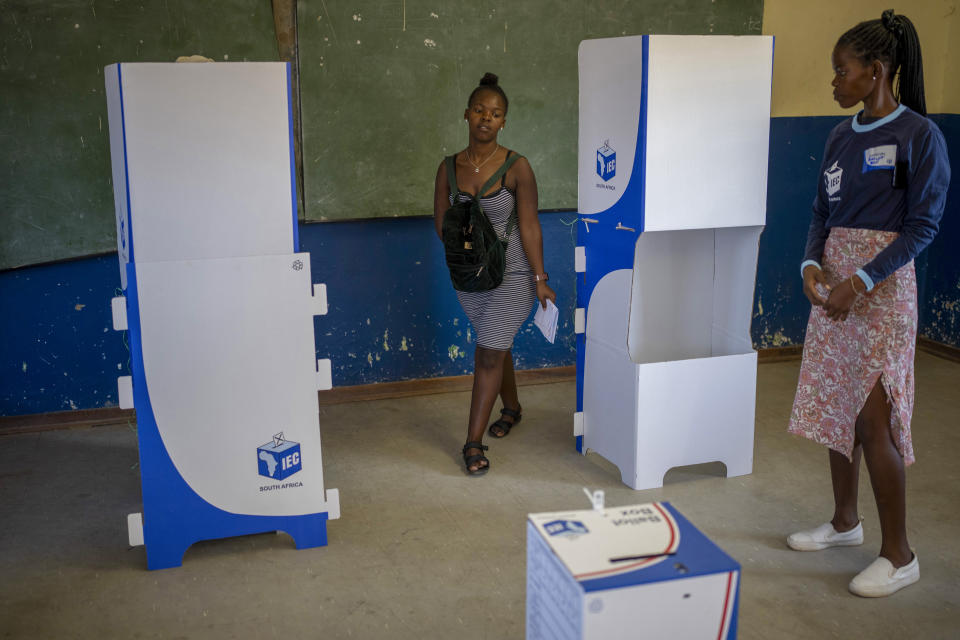Partial count in South Africa election puts ruling ANC below 50% as country senses momentous change
JOHANNESBURG (AP) — Partial results in South Africa's national election put the long-ruling African National Congress party at well below 50% of the vote as counting continued Thursday, and it could be on the brink of losing its majority for the first time since sweeping to power under Nelson Mandela at the end of apartheid in 1994.
That would be a momentous change for South Africa, where the ANC has been dominant for all 30 years of its young democracy and the only governing party many have known.
The ANC had the most votes and was well ahead in the early results, as expected. But if it fails to secure a majority, it may have to form a coalition to remain in the government — something that has never happened before in post-apartheid South Africa. Without a majority, the ANC would also need help from other parties to reelect President Cyril Ramaphosa for a second term.
“I think we are seeing a massive change in South African politics,” Susan Booysen, a political analyst and professor emeritus at the University of the Witwatersrand in Johannesburg, said on national broadcaster SABC TV.
It was still only an early picture after Wednesday's election. The final results were expected to take days, with the independent electoral commission saying they would be delivered by Sunday, although they could come earlier.
South Africans were waiting with baited breath to see if their country, Africa's most advanced economy, was about to enter a new era. Some analysts said the incomplete results were already unprecedented with regards to how far the long dominant ANC was below the 50% mark at this stage in the counting. The partial results put the ANC at 43% of the vote.
The ANC's worst performance in a national election is the 57.5% it won in the last one in 2019. A projection from a government agency and SABC, based on early vote returns, estimated that the ANC would end up with about 42% this time, a drop of more than 15%, which would be a stunning result in the context of South Africa.
The ANC would likely have to co-govern and find a coalition partner if the projections hold, taking South Africa into the unknown. The ANC said right up to Wednesday's election that it was confident of retaining its majority and has given no indication over how it might form a coalition government.
While it was a defining moment, South Africa was "having to craft a new direction but without a clear indication of what direction that is likely to be," said Terry Tselane, executive chairman of the Institute of Election Management Services in Africa, an electoral think tank.
This election was seen as a direct referendum on the unbroken rule of the ANC, which freed South Africa from the oppressive, racist apartheid regime in the famous all-race vote of 1994 but has seen a steady decrease in its popularity over the last two decades.
ANC deputy secretary-general Nomvula Mokonyane said on SABC: “We remain optimistic.”
Nearly 28 million people out of South Africa's population of 62 million were registered to vote.
South Africa may be the continent's most advanced country, but it has struggled to solve a profuse inequality that has kept millions in poverty decades after the segregation of apartheid ended. That inequality and widespread poverty disproportionately affects the Black majority that make up more than 80% of the country’s population. South Africa has one of the worst unemployment rates in the world at 32%.
Voters repeatedly referred to unemployment as well as other issues like ANC corruption scandals, problems with basic government services and high violent crime as their main grievances.
“The ANC has failed us for 30 years," said Thandi Hlope, who lives in a rural town in the eastern KwaZulu-Natal province. “They failed to bring us real freedom.”
The ANC was faced with more opposition than ever in this vote. More than 50 political parties were registered to participate, the most in a national election, with many of them new. Much of the opposition vote was expected to be spread among an array of those other parties, though.
The early results put the main opposition Democratic Alliance at around 24% of the vote and the Economic Freedom Fighters party at around 9%. The partial results also reflected the immediate impact of the new MK Party of former President Jacob Zuma, who has turned against the ANC he once led. The MK Party was challenging the EFF for third in its first election and a significant factor in draining support from the ANC.
South Africans vote for parties and not directly for their president in national elections. Those parties then get seats in Parliament according to their share of the vote and lawmakers elect the president. The ANC has always had a clear parliamentary majority since 1994, so the president has always been from the ANC.
That process of electing a president wouldn't be so simple if the ANC lost its majority.
The electoral commission predicted a high turnout and that was reflected in Wednesday's scenes across the nation, as South Africans lined up into the night to make their choice. The long, snaking lines of voters in cities, towns and rural fields revived memories of the definitive election of 1994 that changed a country.
While polls officially closed at 9 p.m., voting continued for hours after that in many places as officials noted a late surge of ballots being cast in major cities like Johannesburg and Cape Town. The electoral commission said the last votes were cast at around 3 a.m. The rules say that anyone lining up at a voting station by the closing time must be allowed to vote.
The determination of South Africans standing out in the chilly winter weather into the middle of the night suggested millions had embraced how consequential this election might be.
___
Imray reported from Cape Town. AP writer Farai Mutsaka contributed from Mahlbnathini, South Africa.
___
AP Africa news: https://apnews.com/hub/africa

